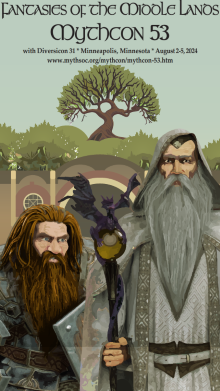Abstract
As much as J. R. R. Tolkien valued the heroism expressed in “The Battle of Maldon,” with its record of warriors who died to maintain their oath, he challenged the notion of utter adherence to a sworn oath in The Silmarillion. The over-arching narrative of The Silmarillion tells of Fëanor and his seven sons who swear an oath to reclaim the three Silmarils from any “Vala, Demon, Elf or Man as yet unborn, or any creature, great or small, good or evil, that time should bring forth unto the end of days, whoso should hold or take or keep a Silmaril from their possession” (Silmarillion 83). The extended story ultimately highlights the bitter regret that can come from seeking to fulfill an oath that, the more it is pursued, the more harm is done. As such, we can better understand the perspective of Elrond in The Lord of the Rings, as Elrond saw first-hand the ultimate end of the oath of Fëanor: in language reminiscent of the Old English poem “The Wanderer,” Elrond observes that efforts not to break an oath can break one’s heart instead.
Creative Commons License

This work is licensed under a Creative Commons Attribution-NonCommercial-No Derivative Works 4.0 International License.


